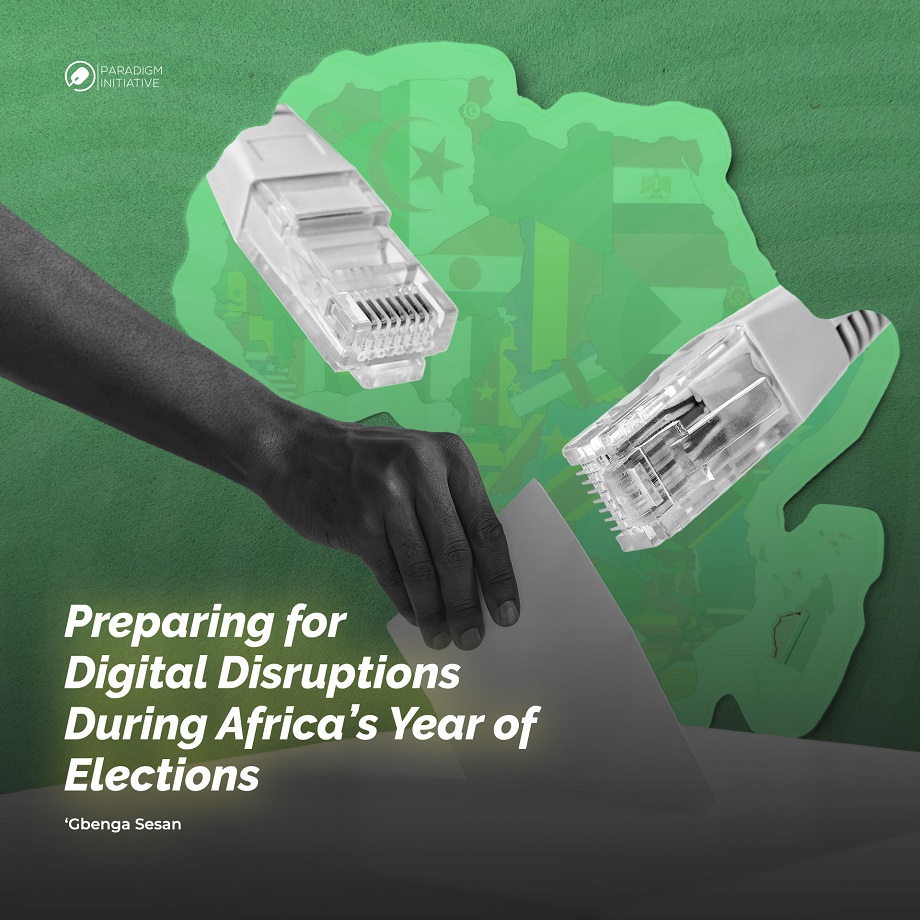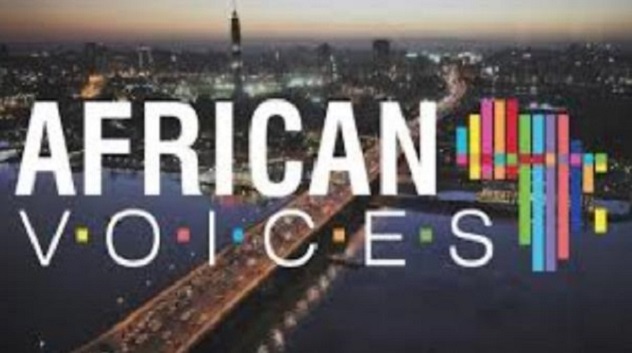Broadcasting
Preparing for Digital Disruptions During Africa’s Year of Elections

By ‘Gbenga Sesan
This year, 23 African countries will hold elections – ranging from local to parliamentary and presidential. Considering that election seasons are known to come with many digital rights violations, including internet shutdowns, digital platform clampdowns, privacy breaches and other digital restrictions, it is essential to pay attention, anticipate likely infringements and work to ensure the respect of citizen rights in the digital sphere, alongside others.

Over the last two years, the internet has been shut down by the governments of the Republic of the Congo, Niger, Uganda and Zambia during election periods. Of the five African countries that shut down the internet in 2022, one of them (Somalia) held elections the same year, while three (Sierra Leone, Sudan and Zimbabwe) have elections planned for 2023. Burkina Faso’s shutdown may not be directly linked to elections, but it is connected to the country’s January 2022 coup d’état.
In 2023, presidential elections will hold in Gabon, Liberia, Libya, Madagascar, Nigeria, Sierra Leone, South Sudan, Sudan and Zimbabwe. All of them, except Madagascar, have shut down the internet or restricted the use of digital platforms. Apart from Libya, all the other countries that have elections in 2023 and have disrupted access to the internet or digital platforms before did so within the last three years. Will they do so again, under the guise of preventing the spread of misinformation, countering dangerous speech, possible violence or any other excuse used in the past, as they approach elections in 2023?
Gabon has had the same president since October 2009. After Omar Bongo – who had been the country’s president for 42 years – died in June 2009, his son, Ali Bongo Ondimba, Minister of Defense at the time, won the elections conducted four months later. The January 2019 internet shutdown in Gabon happened during a military coup attempt, and the government refused to respond to civil society enquiry on the reason for the shutdown.
Liberia cut off access to its most popular social media platform during protests in June 2019. Libya’s disputed elections have been postponed three times in the past four years. Still, the country is no stranger to digital rights violations during public interest events, beginning with its February 2011 shutdown of internet and international phone services in response to protests.
In June 2021, Nigeria announced a nationwide shutdown of access to a social media platform considered one of the country’s last-standing civic spaces. Even though an Economic Community of West African States (ECOWAS) Court of Justice ruling declared the government’s decision to suspend Twitter “unlawful and inconsistent with the country’s international obligations” and “ ordered Nigeria to ensure the unlawful suspension would not reoccur and to take necessary steps to amend its laws to be in conformity with the rights and freedoms enshrined in the ACHPR and ICCPR”, the government has refused to confirm that such violations will not reoccur.
In August 2022, Paradigm Initiative (PIN), a Pan African organization that advocates for digital rights and inclusion, and other digital rights stakeholders condemned an internet shutdown that followed during citizen protests in Sierra Leone. Even for a country where only 6.5% of the population has access to the Internet, South Sudan shut down the internet ahead of planned protests in August 2021. Even though a Sudan court ordered the end of the internet shutdown that followed protests against a military coup in October 2021, it did not stop the country from repeating the violation again in June 2022, ahead of planned protests. Speaking on the June 2022 shutdown, the Sudanese Engineers Syndicate said, “…cutting off internet and communication services in Sudan has become a pattern and led to many violations.
In January 2019, Zimbabwe shut down the internet in response to citizens’ protests. At the end of the three-day closure ordered by the government, it asked telecommunications companies to implement shutdowns a second time in the same week. A judge ruled that the shutdown was illegal but that did not stop another shutdown at the end of July 2020.
For countries that have developed the habit of disrupting digital access during significant democratic events, it appears that judicial pronouncements, civil society condemnation or citizen dissent are never enough to prevent future violations. However, it is important to prepare for the likelihood of such violations of digital rights and challenge them to prevent impunity.
As all twenty-three African countries go to the polls, the task of protecting citizen rights – including preventing, condemning and/or seeking redress – does not rest on civil society organisations and activists alone. We must all work to ensure that a continent that lost $261 million to internet shutdowns in 2022 and desperately needs to maximise digital opportunities for its citizens stays off the path of digital clampdowns that do not serve anyone’s interest.
We must support the work of digital rights actors who continue to document evidence of digital rights infractions, provide information on how to stay safe and help citizens seek redress when violations happen. Through the annual Londa report, PIN has documented digital rights violations and significant policy updates across African countries since 2016. Each year since 2019, Londa, which included 22 independent country reports in 2021, forms the basis of short films produced by PIN to condense the message into less than thirty minutes of infotainment.
The short film based on the 2021 report, Finding Diana , is available on PIN’s YouTube page, as well as the 2020 film, Focus, and 2019 film, Training Day. Building on information from the reports and short films that expose violations and deliberate bad practices, PIN developed a digital rights toolkit, Ayeta, to educate digital rights actors and other citizens on how to protect themselves in digital spaces. If violations happen despite citizen action to protect themselves, the Ripoti platform provides an opportunity to report incidents and seek legal redress.
During elections, PIN provides country-specific information on how to stay online if digital clampdowns happen. The first edition of the Digital Rights and Elections in Africa Meetings (DREAM) was held in Abuja on February 7, 2023, ahead of Nigeria’s February 25 and March 11 general elections. Similar editions are planned to hold ahead of elections in other countries. We know that election seasons are fraught with violations and so we must prepare for digital disruptions.
However, as it happened in 2020 in Ghana and 2022 in Kenya, it is possible that no digital disruptions will be reported in most countries. Civil society organisations working in both countries will tell you that it requires a lot of work to avoid disruptions. Eternal vigilance is the price of liberty, in this case, because there are many competing interests during elections, and even in countries with no record of digital rights violations, some of those interests are served by clampdowns on the opposition and dissenting voices.
The best time to prepare for likely violations is before they happen, and it is your duty and mine to make that preparation happen across the African countries that will hold elections in 2023.
The writer is the Executive Director of Paradigm Initiative and a member of the United Nations Secretary General’s Internet Governance Forum (IGF) Leadership Panel.
Broadcasting
MultiChoice Suspends Yearly DStv Price Hike as Canal+ Pushes Growth

MultiChoice has said that it will not implement its customary yearly price increase on DStv and GOtv subscriptions.

This is the first time the Pay-TV company will not be adjusting its price in April, as it has in previous years, signalling a clear shift in direction under its new owner, Canal+.
The decision, confirmed by David Mignot, group chief executive,MultiChoice in an interview with TechCentral, comes as the pay television operator grapples with steep subscriber losses across its markets.
For many households accustomed to annual April tariff adjustments, the announcement will be a welcome break.
Responding to questions about whether DStv prices would rise in April as they have in previous years, Mignot gave a firm response: there will be no increase.
He explained that the company’s immediate focus is on rebuilding its subscriber base, making this an unsuitable period to adjust prices upward.
He added that while there are no current plans for a price hike, the company has not completely ruled out adjustments later in the year, especially if economic conditions demand it, such as significant currency movements.
MultiChoice has historically reviewed and raised DStv subscription fees in April, often citing inflationary pressures and rising content costs. As recently as April 2025, bouquet prices were adjusted upwards by between 2.1 per cent and 7.9 per cent.
The DStv Premium package rose from R929 to R979 per month, while DStv Access, the entry-level satellite package, recorded one of the steepest increases.
This year’s pause represents a break from that pattern and forms part of a broader reset following Canal+’s acquisition of MultiChoice in September 2025.
Mignot, who brings three decades of experience in the pay television industry, summed up his mission in simple terms: halt subscriber losses and return the business to growth.
The urgency behind the move is evident in MultiChoice’s recent performance.
The group has lost 2.8 million linear broadcasting subscribers in the two years ended 31 March 2025, with roughly half of those losses occurring in South Africa.
In the financial year to end-March 2025 alone, MultiChoice shed 1.2 million subscribers, representing an eight per cent year-on-year decline and leaving the group with 14.5 million active customers.
The previous year saw an even steeper drop of 1.6 million subscribers. By June 2025, Canal+ indicated that the pace of decline had intensified further.
The financial impact has been significant. Revenue for the year ended 31 March 2025 declined by R4 billion to R52 billion, while trading profit fell sharply by 49 per cent to R4 billion.
According to Mignot, the company’s difficulties stem less from its programming slate and more from weaknesses in its commercial execution.
He argued that in subscription businesses, a churn rate of between 12 and 15 per cent annually is inevitable as customers relocate, experience job losses, adjust household budgets, or change priorities. Without attracting a comparable number of new subscribers each year, losses accumulate.
Mignot maintained that the content offering remains strong, particularly in sport and general entertainment. He cited flagship brands such as SuperSport, M-Net and Africa Magic as evidence of sustained investment in programming. However, he stressed that content strength alone cannot offset a weakening subscriber acquisition engine.
He noted that MultiChoice’s commercial machinery had performed robustly across Africa until around 2022, describing the current challenges as relatively recent.
Drawing on Canal+’s experience in French-speaking African markets, Mignot pointed out that pricing there has remained largely unchanged for close to 14 years, supported by a volume-driven approach. He described his strategy as one focused on growing subscriber numbers while maintaining profitability.
While he did not dismiss the possibility of reviewing prices downward in future, he indicated that no such decision has been taken.
Broadcasting
Spotify Marks 5 Years in Nigeria with 163.5% Listening Surge, Afrobeats Boom

Spotify marked five years in Nigeria since its February 2021 launch with dramatic year-on-year listening growth averaging 163.5% through 2025, featuring triple-digit surges early on and sustained momentum, propelled by Afrobeats streams rocketing +5,022% alongside booming genres like Amapiano (+10,330%), Gospel/Praise (+5,499%), Hip-hop/Rap (+3,020%), and R&B (+2,602%).

Spotify
Indigenous language music listening surged +554% in Nigeria in 2024 and +87% in 2025, with global growth at +141% and +41% respectively, underscoring rising demand for local storytelling sounds.
The platform’s Nigerian artist roster expanded +158%, fueling a discovery boom where average listeners (aged 26) streamed 150 different artists recently; users created over 25 million playlists, logged 1.4 million play hours in 2025 alone, and streamed 59 billion podcast hours total.
Top Artists (2021-2025): Asake, Wizkid, Seyi Vibez, Burna Boy, Davido.
Top Songs: “Remember” (Asake), “Dealer” (Ayo Maff & Fireboy DML), “Awolowo” (Fido), “Kese (Dance)” (Wizkid), “Lonely At The Top” (Asake), “Joy is Coming” (Fido), “With You” (Davido feat. Omah Lay), “Terminator” (Asake), “MMS” (Asake feat. Wizkid), “Doha” (Seyi Vibez).
Nigeria’s debut stream was Shiga Lin’s Cantopop epitomizing borderless discovery from day one.
Broadcasting
Pheelz Shares His Journey on Glo-Sponsored African Voices

Nigerian singer, songwriter and producer Pheelz (Phillips Kayode Moses) is set to feature this weekend on African Voices Changemakers, the flagship magazine programme on CNN International.

The 30-minute episode, sponsored by digital solutions company Globacom, premieres on Saturday, February 21, 2026. In a candid sit-down with host Larry Madowo, Pheelz opens up about his journey from church musician to global hitmaker, reflecting on the intersections of faith, fame and the expanding influence of Afrobeats on the world stage.
Now 31, Pheelz began his musical path as a multi-instrumentalist in church before earning widespread acclaim in 2012 as the producer behind the hit tracks “First of All” and “Fucking with the Devil” on Olamide’s YBNL album. His rapid rise saw him named among NotJustOk’s Top 10 Hottest Producers in Nigeria in 2013.
He further solidified his reputation by producing nearly every track on Olamide’s Baddest Guy Ever Liveth, earning nominations at The Headies 2013 and in the Producer of the Year category at both The Headies 2014 and the Nigeria Entertainment Awards. In 2020, he clinched The Headies Producer of the Year award, and in 2021 secured the Soundcity MVP Award for Best Collaboration for “Finesse,” his smash hit with Bnxn (formerly Buju).
On the programme, Pheelz reflects on the experiences that shaped his sound and creative philosophy, discusses landmark collaborations, shares his perspective on artificial intelligence and artistry, and explains why sound, storytelling and culture remain central to African music’s global resonance.
The show airs on DSTV Channel 401 at 8:30 a.m. (WAT) on Saturday, with repeat broadcasts at 12:00 noon the same day; Sunday at 4:30 a.m. and 7:00 p.m.; Monday at 4:00 a.m. and 6:45 p.m.; and Tuesday at 6:45 p.m. The broadcast schedule continues through Monday of the following week.

 General News3 days ago
General News3 days agoMore 14m Farmers to Benefit from AfDB-backed Initiative

 Telecom3 days ago
Telecom3 days agoMTN Nigeria Posts Record N1.70 Trillion Pre‑Tax Profit, Declares N20 Dividend for 2025

 Telecom3 days ago
Telecom3 days agoDimension Data Nigeria Secures ₦20Billion Funding to Strengthen Digital Infrastructure

 News3 days ago
News3 days agoGalaxy Backbone Confirms Over 150,000 Active Official Government Email Accounts, Clarifies Status of GOVMAIL

 Telecom3 days ago
Telecom3 days agoAlerzo Liquidates Delivery Fleet as N4.38bn Moniepoint Loan Row Deepens

 General News3 days ago
General News3 days agoNewmark Webinar Explores How AI Could Transform Healthcare in Africa

 E-Financial21 hours ago
E-Financial21 hours agoIran-Israel-US Conflict and CBN’s FX Gains: A Stress Test for Nigeria’s Monetary Stability

 General News21 hours ago
General News21 hours agoSERAP Asks FCCPC to Investigate Google, Meta, Others over Alleged Rights Abuses

























